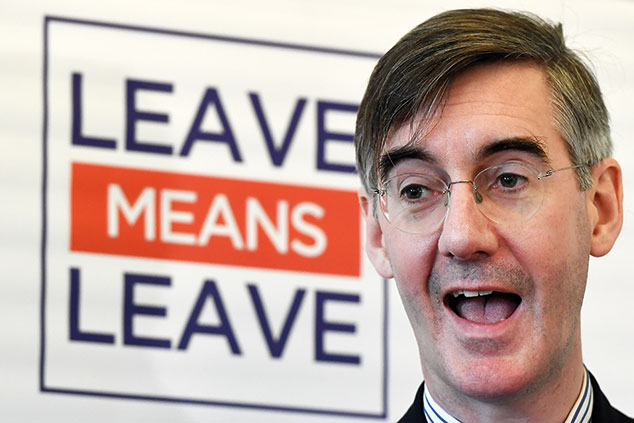
The fury of Rees-Mogg et al should prove irrelevant. Matthew Partridge reports.
“The fight over Britain’s future customs relationship with the EU has split the Conservative party,” says George Parker in the Financial Times – and it was expected to split Prime Minster Theresa May’s inner Brexit cabinet when it met to discuss customs policy earlier this week. May is proposing a “hybrid” customs partnership, under which Britain will “mirror the EU’s customs regime at its borders and collect tariffs on behalf of Brussels”.
Hard Brexiters such as Jacob Rees-Mogg say the plan is “bonkers” – it could end up with the UK being “forced to stay in a customs union by default”. But on the other side, “at least a dozen pro-European Conservatives” are ready to vote against May to keep Britain in a customs union.
No easy solution
There are no easy solutions to this “quandary”, says The Economist. May wants a “workable deal that satisfies business folk and prevents a hard border in Ireland”. She also wants to reassure pro-Brexit Tories she is “sticking to her red lines of leaving the single market and customs union”.
And there are good reasons for her to do so, says May’s former adviser, Nick Timothy, in The Sun. There are “significant downsides” to staying within the customs union. It would mean having to sign up to European regulations “over which we would have no say”.
We would also be unable to sign our own trade agreements with other countries. What May should be aiming for is a “highly streamlined customs arrangement” that would “minimise bureaucracy and limit new barriers to trade with Europe”, while still allowing Britain to “strike trade agreements with the world’s fastest- growing economies”. European politicians and customs experts say this approach “is not only workable but desirable”.
For now, however, fearful that Britain could end up in a customs union, or “something very similar by a different name”, hard Brexiters are holding a gun to May’s head by predicting a “full-scale Tory civil war” that would destroy her premiership, says Andrew Rawnsley in The Observer. There is a perception that she has “slowly but surely stitched up the hard Brexiters” in her cabinet by pretending to agree with their “red lines” and leaving the “power of time and the brute facts of the parliamentary arithmetic and economic life to do the work of softening Brexit”.
Hard Brexiters are powerless
Rees-Mogg and his supporters may not like what is happening, but their “fury” is “irrelevant”, says Daniel Finkelstein in The Times. Not only would they struggle to get enough Conservative MPs to challenge May, but there is no reason to suppose that getting rid of her would produce a “purer” Brexit.
With Labour now firmly opposed to a hard Brexit, “there is no majority in the Commons for the only alternative to such a compromise – a no-deal Brexit that sees us crashing out of Europe without a trading arrangement in place”. Ultimately, “the government simply doesn’t have the support to drive through the sort of Brexit that the most vocal Leavers want”.